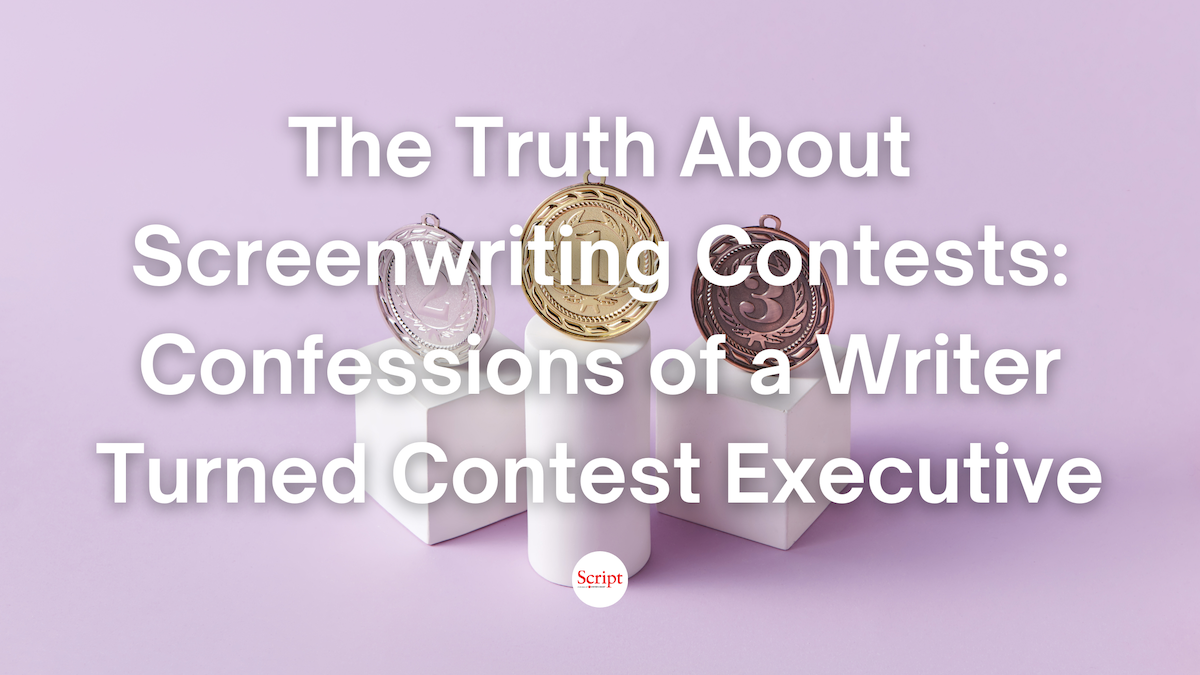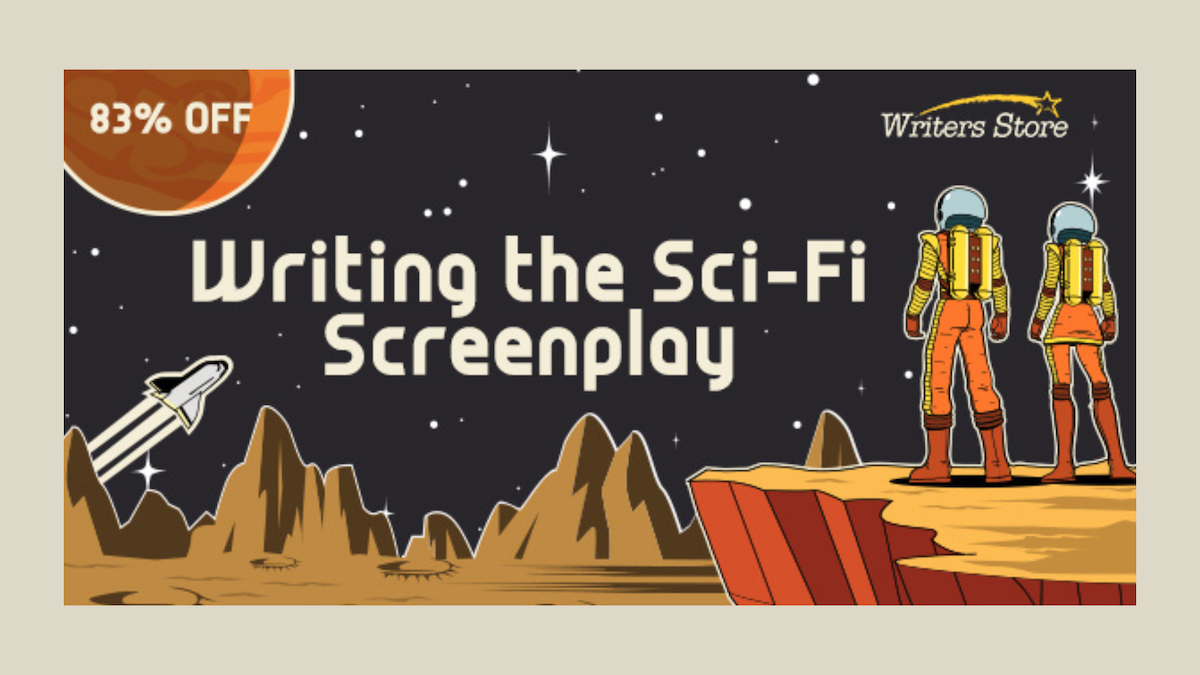BREAKING & ENTERING: The Myth of The Slam Dunk
Fantasies of a slam dunk spec sale make writers salivate. Dreams may be motivating, but Barri Evins proves why it’s essential to keep your eye on the ball.
A producer who’s sold to all the majors, Barri Evins created Big Ideas to give aspiring screenwriters what it takes to break into the business by sharing methods she uses with professional writers. Sign up for Barri’s newsletter and follow her on Twitter @BigBigIdeas.
The hushed moment of anticipation...
The swoosh of the basketball through the hoop...
The roar of the crowd!
The Howard Cosell-like announcer’s voice bellowing out, “She shoots, she sco-o-o-res!”
More cheering from the crowd, jubilant teammates, and an inner high-five to myself.
The film industry Slam Dunk – the fast, smooth, “nothing but net” project set-up that takes only a day or two from hitting the marketplace to finding a buyer – is the stuff fantasies are made of.
All the pieces come together and – BOOM!
Representation, and even attachments fall perfectly into place.
Studio interest is keen. There may be a preemptive offer (a high bid for the property, often with a clock on it, intended to take it off the market and keep the studio out of a biding war situation), a bidding war (when there is interest from multiple buyers and it turns into an auction of sorts, driving the price up), or just, “Wham, bam, thank you ma’am,” and a deal is on the table.
As the deal rapidly goes down, it truly is heart-pounding. Everyone involved knows where everyone else is at that moment. Agent in the office, lawyer in the car, executive on a plane, producer driving to a meeting, me on the table at acupuncture (Yes, the calls on one of my most impressive Slam Dunks ever were coming in while I was at the acupuncturist. You have to raise the cell phone to your ear very, very carefully).
Once the deal for the property is made, there are more deals to be made: negotiations for the writer, the producers, and perhaps an attached director or star. I gotta say, at first, negotiations terrified me. Now I love negotiating. But negotiations are yet another juncture where your deal can implode.
Over the course of my career as a development executive, and producer, I’ve savored the Slam Dunk several times. After pushing boulders uphill on passion projects for months, and even years, it was all I could dream about.
When it happens, it is every bit as thrilling as you could imagine.
Right
up
until
it’s
not.
All’s Well That Ends Well… But The Slam Dunk Never Seems To End Well
In my experience, Slam Dunks have a nasty habit of imploding. Often it happens right away–so quickly that you can’t even catch your breath. But it may not be for years. Don’t let a great beginning lead you to believe that there’s a higher than average chance that you’ll make it to a happy ending.
In fact, I think the Slam Dunk is far more likely to explode or fizzle out than the project that is put together over a length of time and with significant effort.
Here’s a taste some of the shocking project destructions I’ve experienced so you can prepare yourself should you suddenly need to “Duck and Cover”:
The deal closes and the project goes into years of “Development Hell.” This is the most common cause of Project Mortality, and while it’s more of a whimper than a bang, it’s important to anticipate this ending. Scads of notes, rewrites, and even new writers brought onto “your” project. Ironically, the sharpest of “script doctors” reads each and every draft and often suggests that the production team go back to the first draft. At some point, everyone involved seems to have lost sight of what they loved about the project in the first place, that element that was so compelling it led to the Slam Dunk deal.
The deal is about to close – you’re finessing deal points – and it implodes – for reasons that have nothing to do with your project. Another project takes a turn for the worse; confidence is lost at the upper levels, and boom! You’re going from discussing a seven-figure deal to a $10,000 option. Slam…splat.
The deal closes and the exec spearheading the project leaves. The new person in charge – who definitely wants to make their mark on the project (polite of me not to say “pee on it,” but, yes, that is what’s happening here) – has an entirely new take on the project. Such as, instead of two main characters we change the POV to just one. Or instead of a small, dramatic thriller, why don’t we go for Blue Velvet? (I can’t make this up people. I really wish I was exercising my creativity rather than recounting horrifying facts.)
The deal closes, and the head of the studio changes. Of course, the new President immediately cleans house, and puts the project in turnaround, or simply halts development leaving it to languish. Why? If there is a success to be had, they want to get the credit for it, not their predecessor. This one stings. Once, a studio head changed as the ink on our deal was still drying. They offered to turn the six-month book option over to us so we could try and set up it up again – rather than sitting on it, which they were perfectly within their rights to do – but it still sucked. Book rights, screenwriter with a take, producers, and an A-List director. A beautifully packaged project that came together seamlessly, now out in the cold. In all likelihood, this magnanimous gesture was calculated so as not to offend the major director and potentially damage the studio’s future working relationship with him.
The deal closes, the project is developed and ready to go… and it doesn’t get a greenlight. This was the one and only time I ever heard Debra Hill, the prolific producer whose company I ran for years, yell at a studio executive. She was trying to convey why the project would speak to a wide audience, why this movie was worth making and even offered an important message mixed in with the comedy, but they just didn’t get it. We tried like hell to re-set up this project elsewhere – which had an up-and-coming director making his first feature attached – but it had been very specifically tailored to the mini-major whose parent studio balked at the greenlight.
Small consolation prize – the director went on to make a film at another studio, became a hot property churning out one high-grossing film after another and, of course, landed a film and TV deal with the other studio. He’s launched numerous, popular franchises and made them millions upon millions. Had the original studio greenlit his modestly budgeted first feature, they would have been the ones to have a long-standing and very profitable relationship with him. Neener-nener! But I never got to produce the first feature of a director I had been building a great, working relationship with for years, since his award-winning short film, and this gem of a story never got told.
Slam Dunk KABOOM!
The Slam Dunk Kaboom combo is definitely shocking. It takes you from elated to deflated in what seems as fast as zero to 60. But as painful as it is, the key is to not let it knock you flat, discourage you about your material, or shatter your confidence.
The reason I gave so many examples of the project explosions I've lived through is so you can see that it how likely it is to happen, how little it has to do with the material or the attachments, and that what is essential is to survive to fight another day.
If you hope to have a career in this business, you should expect to have many failures along the way. I don't mean to be flippant about that advice, because I know how hard the losses are. I remember crushed and bitter I felt when I lost out on a project I adored, with a writer I had a longstanding working relationship with, as well as a personal friendship, because the agent would not give our company the chance to take it to a studio. Debra essentially told me to “Get over it.” There would be other projects. There would always be other projects. She had produced more than two dozen films. She had a far greater perspective than I did at that point in my career. But over time you toughen up, pick your self up, and move forward.
Because you have to.
Eyes On The Long Run Instead Of The Slam Dunk
Stop fantasizing about the big sale that will change your life and keep your eye on the ball.
Don’t aim for the Slam Dunk. Take consolation in the fact that “slow and steady” often does indeed win the race. That may not be comforting when you’re getting hit with rejection, or taking one step forward and two steps back, but it is the reality more often than you realize. Half or more of the sales you read about in the trades, those articles that makes people seem like overnight successes with deals that have magically fallen into place are vastly exaggerated. It makes for good journalism though, eh?
I once had a development exec call me after a project that was set up while running Debra Hill’s company hit the trades. She was frantic, because her boss had steam coming out of his ears, since she hadn’t “retrieved” the “hot spec” (being a “Golden Retriever,” the heart of her job) for their company. In truth, this was no hot spec. It was a project under option for years, while being developed and packaged, that had finally found a big attachment and a buyer.
Keep writing. You need a deep bench of good material. You’re more commercial if you work tends to stick to a genre. That doesn’t mean that you can’t take a sidestep – say from thrillers to action – but when your work is spread out over many genres, all those people who liked the first script they read will then ask “What else do you have?” They will be expecting something in the same wheelhouse.
Build relationships. It takes a ton of people on each project that gets set up these days: agent, managers, producers, and often stars. Just check out the many names listed in spec sale announcements. You need to build relationships with people who have lots of relationships – and the kind that you need – industry pros who have relationships with lots of other industry pros. One significant attachment leads to more.
Even with all the times I’ve been scooped up, only to be bopped on the head, I still can’t help but fantasize of a Slam Dunk. Who knows, maybe, just this once, the story will have a different ending.
Meanwhile, it’s back to pushing boulders up hill for me.
Have a story of you own Slam Dunk KABOOM?
Share it in the comments below.
- More articles by Barri Evins
- Anatomy of the Deal
- The Business of Your Writing Career: Studios vs. Independent Films
- Script Expert Q&A: Meet Barri Evins of ‘Breaking & Entering’
Selling Your Screenplay to Hollywood
Phone Tips For Talking to Producers and Execs
Get Your Script Into the Hands of Someone Who Can Get it Made
Barri Evins draws on decades of industry experience to give writers practical advice on elevating their craft and advancing their career. Her next SCREENWRITING ELEVATED online seminar with 7 monthly sessions plus mentorship will be announced in 2025. Breaking & Entering is peppered with real life anecdotes – good, bad, and hilarious – as stories are the greatest teacher. A working film producer and longtime industry executive, culminating in President of Production for Debra Hill, Barri developed, packaged, and sold projects to Warners, Universal, Disney, Nickelodeon, New Line, and HBO. Known for her keen eye for up and coming talent and spotting engaging ideas that became successful stories, Barri also worked extensively with A-List writers and directors. As a writer, she co-wrote a treatment sold in a preemptive six-figure deal to Warners, and a Fox Family project. As a teacher and consultant, Barri enables writers to achieve their vision for their stories and succeed in getting industry attention through innovative seminars, interactive consultations, and empowering mentorship. Follow her on Facebook or join her newsletter. Explore her Big Ideas website, to find out about consultations and seminars. And check out her blog, which includes the wit and wisdom of her pal, Dr. Paige Turner. See Barri in action on YouTube. Instagram: @bigbigideas X: @bigbigideas







